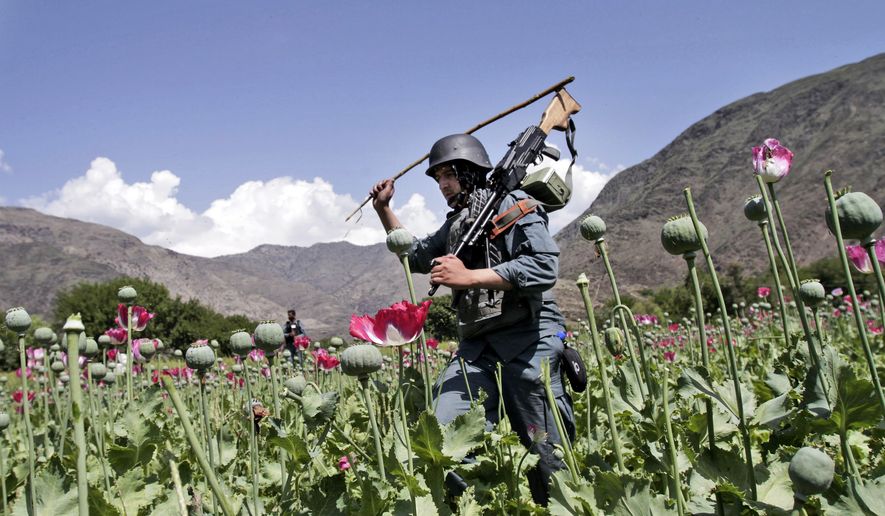America has spent about $7.6 billion to battle opium growth and trade in Afghanistan over the past 10 years — but it’s been largely a moot effort, a new inspector general report found.
One of the findings in the just-released report on U.S. counter-narcotics in the country: The amount of land used to grow poppies in Afghanistan in 2013 was greater than in 2007, the previous record amount, the Los Angeles Times reported. And the profits from poppies’ production grew by $2 billion from 2012, to nearly $3 billion.
“The recent record-high level of poppy cultivation calls into question the long-term effectiveness and sustainability” of the U.S.-led anti-drug program, said John Sopko, the special inspector general for Afghanistan reconstruction, the Los Angeles Times reported.
For instance, areas previously declared poppy-free by the U.N. Office on Drugs and Crime are now filled with opium, the main raw ingredient for heroin. In 2013, Afghani farmers produced 516,000 acres of opium poppy — a new record that beat the 477,000 reported acres in 2007, the Los Angeles Times reported. And Mr. Sopko’s report predicts more of the same in coming years.
“The narcotics trade poisons the Afghan financial sector and undermines the Afghan state’s legitimacy by stoking corruption, sustaining criminal networks and providing significant financial support to the Taliban,” he wrote in his report, the Los Angeles Times reported.
Afghanistan is responsible for providing the world with 80 percent of its opium.
The State Department and the U.S. Agency for International Development agreed in the report that “we need to regularly evaluate the efficacy of our counter-narcotics efforts and adjust them to meet on-the-ground realities as necessary and appropriate,” the Los Angeles Times reported.
• Cheryl K. Chumley can be reached at cchumley@washingtontimes.com.




Please read our comment policy before commenting.